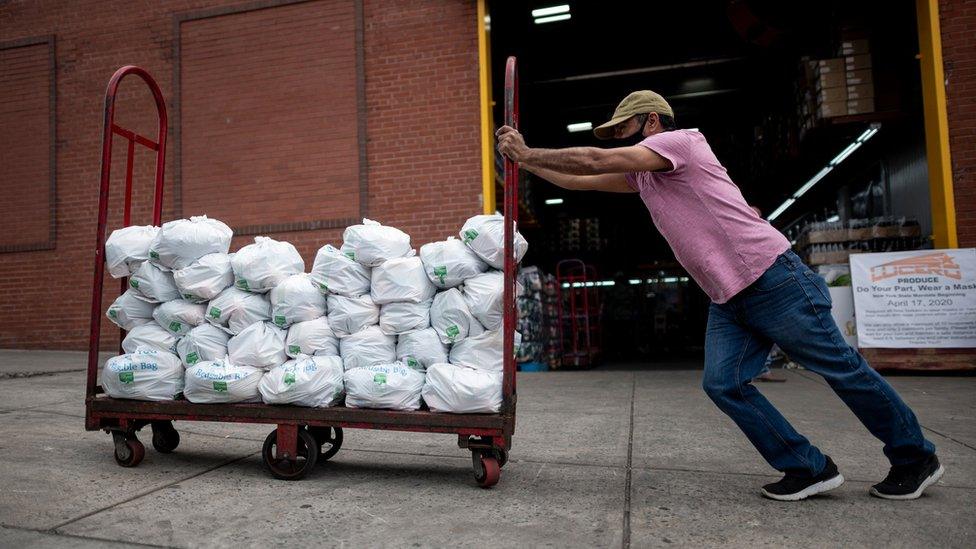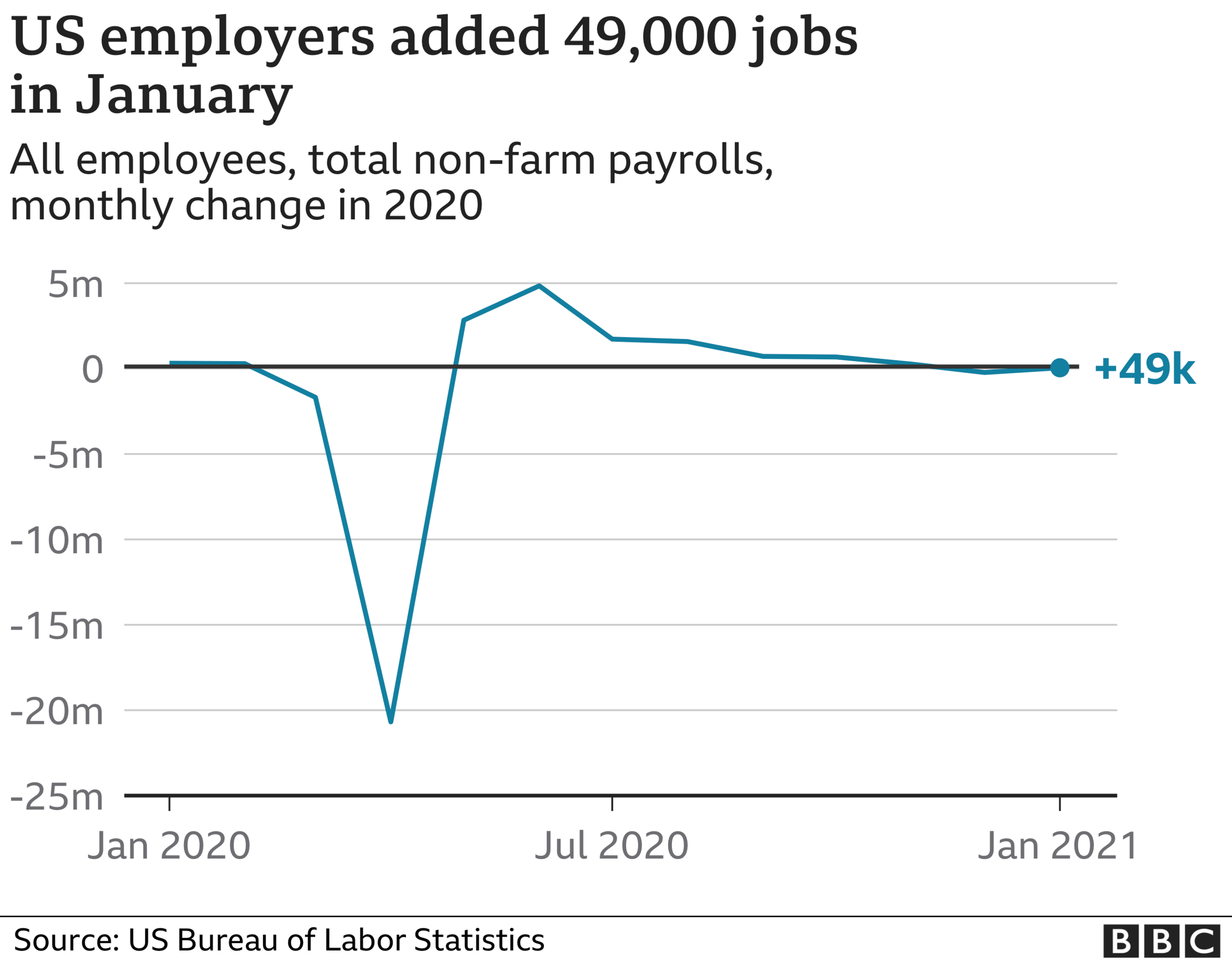US job growth sluggish as virus hampers recovery
- Published

The US economy added just 49,000 jobs in January as the coronavirus pandemic continued to hamper recovery.
Losses hit workers at retail stores, restaurants, casinos and hotels, in a sign that analysts said underscored the need for further economic relief.
The Labor Department said the unemployment rate fell to 6.3%, down 0.4 percentage points from December.
But the US remains about 10 million jobs short of where it stood in February 2020, before the pandemic hit.
"It's very clear that our economy is still in trouble," US President Joe Biden said in a speech on Friday, in which he pressed for approval of a $1.9tn (£1.4tn) spending package. "I see enormous pain in this country. I am going to act fast."
The weak hiring in January followed job losses in December, which put an end to a streak of job gains that started in May.
The Labor Department said on Friday those falls were deeper than originally estimated, with 227,000 jobs cut instead of 140,000 as previously reported.
Analysts also attributed the fall in the jobless rate to more people giving up on looking work, as roughly 400,00 more people withdrew from the labour force.
Hardest hit
"This is a significantly softer report than expected, at least in terms of payrolls," said Ian Shepherdson, of Pantheon Macroeconomics. "The bottom line here is that the labour market was frozen at the start of the year, and is completely dependent on the pace of reopening, which in turn is contingent on the speed and sustainability of the fall in hospitalizations."
Temporary hires accounted for most of January's job gains, while most other industries shed positions.
The losses have hit low-income, minority and female workers hardest a trend that continued in January. Nearly 40% of the unemployed have been without work for more than six months.

Mr Biden's $1.9tn stimulus package would send cheques worth $1,400 to most families, expand jobless aid and provide new money for struggling businesses - as well as devote millions to testing and vaccination efforts.
Senate Democrats narrowly approved the measure early on Friday, over Republican opposition, sending it to the House of Representatives, where it is expected to receive support.
"The soft January US employment report strongly implies that the next round of fiscal aid/stimulus needs to be error on the side of caution and go big," economist Joseph Brusuelas, of the RSM accounting and consultancy firm, wrote on Twitter.
"Outside of professional business and services hiring this report is undeniably weak."

The jobs crisis isn't over
By Michelle Fleury, BBC News
Since the pandemic hit, workers at restaurants and hotels and other businesses badly affected by shutdowns have struggled, but the rest of the economy has shown signs of adapting. Some companies even thrived.
The employment report for January, however, undermines that theory.
Segments of the economy not directly affected by the pandemic aren't doing well. Hiring in industries like transportation and warehousing fell last month. There were also declines in healthcare.
At January's pace of 49,000 jobs per month, it would take roughly 17 years for the US jobs market to get back to where it was a year ago.
It's a reminder for those shaping US economic policy that America's jobs crisis is far from over.

Related topics
- Published26 January 2021
